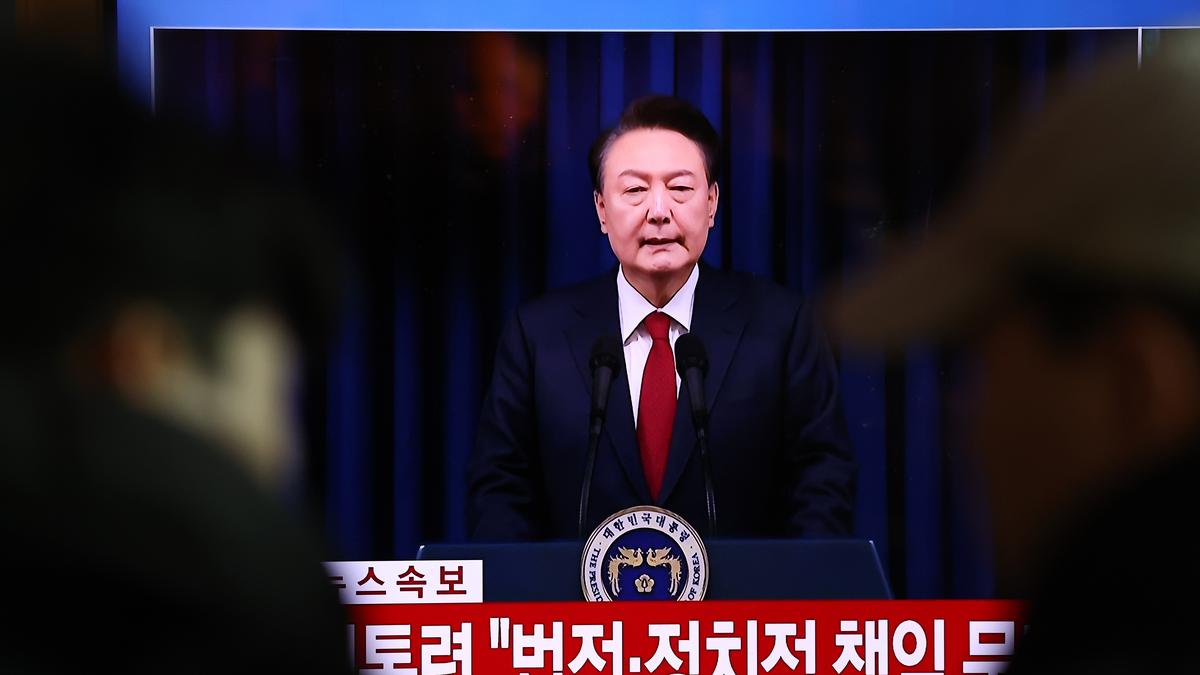
South Korean president Yoon apologises for declaring martial law, saying he will not shirk responsibility
The Hindu
South Korea's president apologizes for martial law attempt, faces impeachment vote amid political turmoil and international concern.
South Korea’s president apologised Saturday (December 7, 2024) for public anxiety caused by his short-lived attempt to impose martial law earlier this week hours ahead of a parliamentary vote on impeaching him.
Mr. Yoon said in a brief televised address Saturday morning he would not shirk legal or political responsibility for the declaration and promised not to make another attempt to impose it. He said he would leave it to his conservative political party to chart a course through the country's political turmoil, “including matters related to my term in office."
South Korean lawmakers are set to vote later Saturday on impeaching President Yoon Suk Yeol over his short-lived attempt to impose martial law, as protests grew nationwide calling for his removal.
ALSO READ | Timeline of South Korea’s martial law declaration
It wasn’t immediately clear whether the motion submitted by opposition lawmakers would get the two-thirds majority required for Mr. Yoon to be impeached. But it appeared more likely after the leader of Mr. Yoon’s own party on Friday called for suspending his constitutional powers, describing him as unfit to hold the office and capable of taking more extreme action, including renewed attempts to impose martial law.
Impeaching Mr. Yoon would require support from 200 of the National Assembly’s 300 members. The opposition parties that jointly brought the impeachment motion have 192 seats combined.
That means they would need at least eight votes from Mr. Yoon’s People Power Party. On Wednesday, 18 members of the PPP joined a vote that unanimously cancelled martial law 190-0 less than three hours after Mr. Yoon declared the measure on television, calling the opposition-controlled parliament a “den of criminals” bogging down state affairs. The vote took place as hundreds of heavily-armed troops encircled the National Assembly in an attempt to disrupt the vote and possibly to detain key politicians.











